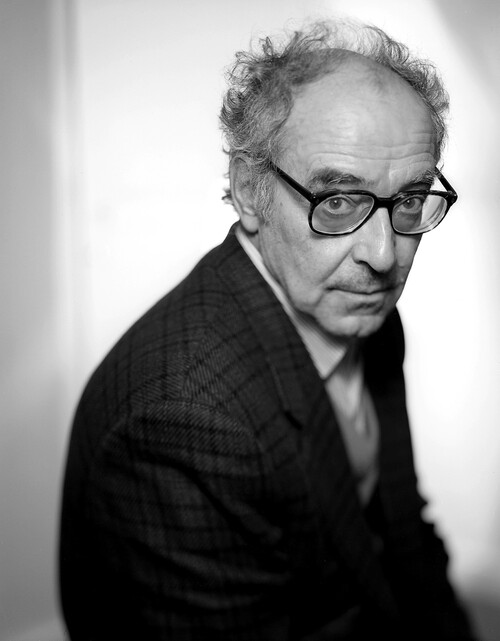How to republish
Read the original article in french and consult terms of republication.
Godard, a filmmaker of cinema
By Marc Cerisuelo, laboratoire Littératures, Savoirs et Arts (LISAA),Université Gustave Eiffel

Jean-Luc Godard, who passed away on 13 September 2022 at the age of 91, was a profoundly paradoxical filmmaker who was almost better known in the English-speaking world than in France today.
Indeed, he had lost a large part of his audience over the years due to the particularity of his films, which offered a reflection on cinema itself, a cinema of cinephiles but also of philosophers, filmmakers and critics.
His prolific work was part of the French New Wave movement that emerged at the end of the 1950s, such as his film La Chinoise.
Godard was also part of a generation of self-taught cinephiles identified with Cahiers du cinéma (launched in 1951) and the creation of the Cinémathèque française in 1936. This symbolic moment was important because it was an integral part of an era. Born in 1930, Godard belonged to the first generation who were aware that the history of cinema was in the process of being written and could testify to it.
His rise coincided with a cultural period in the 1960s whose influence extended beyond France. The French New Wave movement led to the emergence of other new waves, such as the new cinema movements in Poland and Italy, with Bertolucci and Pasolini, but also in Czechoslovakia, Brazil, Japan and even Russia.
The 1970s and 80s were another key period that constituted a turning point in his work, with films such as Sauve qui peut (la vie) and Passion , which aroused great interest among young people who, like myself, were 20 years old at the time. This was followed by other works.
Paradoxes
In the French cultural landscape, Godard nevertheless remained an intellectual filmmaker. At the turn of the 21st century, interest in Godard grew in the United Kingdom and the United States, particularly among academics and major film institutions such as the British Film Institute and the Lincoln Center in New York.
Among filmmakers, his influence can be found in the works of Terence Davies and critic and producer Colin MacCabe.
In France, however, it was his personality more than his works that drew crowds, which had a significant impact on him.
His eccentric character, his sense of the truth, his love of literature and his many paradoxes sparked adhesion and infatuation - or sometimes perplexity.
Jean-Luc Godard was an eminently political voice and he drew inspiration from his time. Even as the civil unrest in France of May 1968 heralded a change of life, Godard changed cinema. He was very active in French Maoism , he worked with collectives and was an activist. He was also very pro-Palestinian, as shown in his films Jusqu’à la victoire (1971) released at the time of the attacks by the Black September Organisation, and Ici et ailleurs (1974).
His positions on Palestine, which were very radical and characterised by very strong anti-Americanism, earned him severe animosity, but also famous friendships, such as with the intellectual Elie Sanbar. For a time, they were also shared and upheld by Cahiers du cinéma. Today, his political passion still sparks debate among French academics, such as Nicole Brenez and David Faroult.
Godard’s influence can also be found among the most controversial American and British academics today.
Where was Godard in 2022?
Godard, who despised film schools, taught (again, paradoxically!) at the French state film school La Fémis (Ecole Nationale Supérieure des Métiers de l’Image et du Son). But it is not so easy to find his influence or aesthetic in the works of the most contemporary filmmakers. In Arnaud Desplechin’s films, for example, we see more of François Truffaut than Godard. Stylistically speaking, a director like Robin Campillo, who made 120 battements par minute, is perhaps closer in comparison, although the topics addressed are very different.
Jean-Luc Godard never opposed fiction and documentary. For him, a film was first about seeing, before writing and filming. It is a documentary with actors in which the character is filmed “documentarily”; this is the key to understanding Godard's oeuvre, his trademark. In some respects, a similar approach can be found in the films by Jean-Marie Straub and Jean Eustache.
But this concept of cinema is difficult to find elsewhere today, quite simply because Godard's idea of it is inscribed in that of the cinema of an era: the 20th century.
To understand the power of his cinema, one must look at his masterpiece- which is, in my opinion, Histoire(s) du cinéma (1988-1998), which is both a tribute and a funeral monument to cinema.
Identity card of the article
Original title: | Godard, cinéaste du cinéma |
Authors: | Marc Cerisuelo |
Publisher: | The Conversation France |
Collection: | The Conversation France |
License: | The original version of the article was published in French by The Conversation France under Creative Commons license. Read the original article. An English version was created by Hancock & Hutton for Université Gustave Eiffel and was published by Reflexscience under the same license. |
Date: | March 14, 2023 |
Languages: | english, french and spanish. |
Keywords: | history, cinema, art, documentary, France |

![[Translate to English:] Licence creative commons BY-SA 4.0 [Translate to English:] Licence creative commons BY-SA 4.0](https://reflexscience.univ-gustave-eiffel.fr/fileadmin/ReflexScience/Accueil/Logos/CCbySA.png)